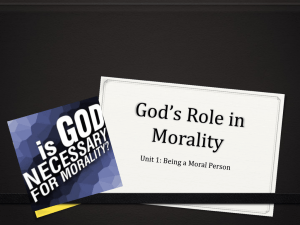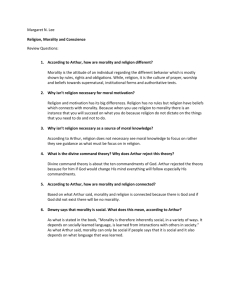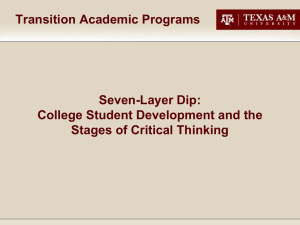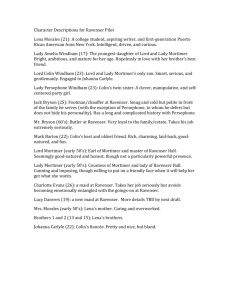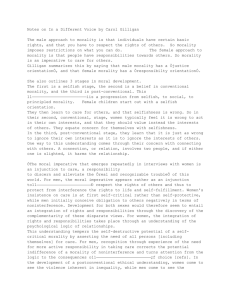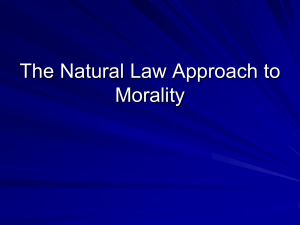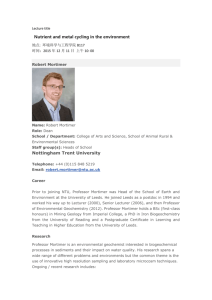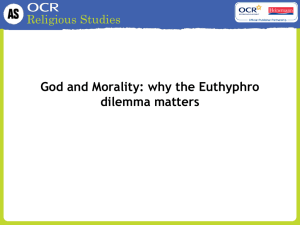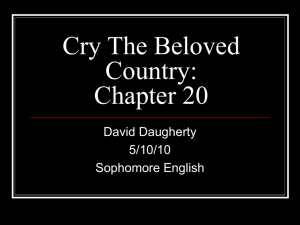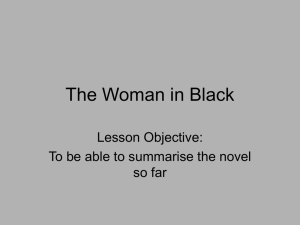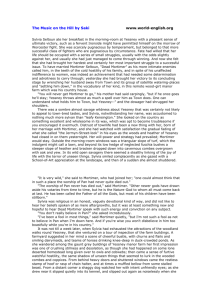File
advertisement
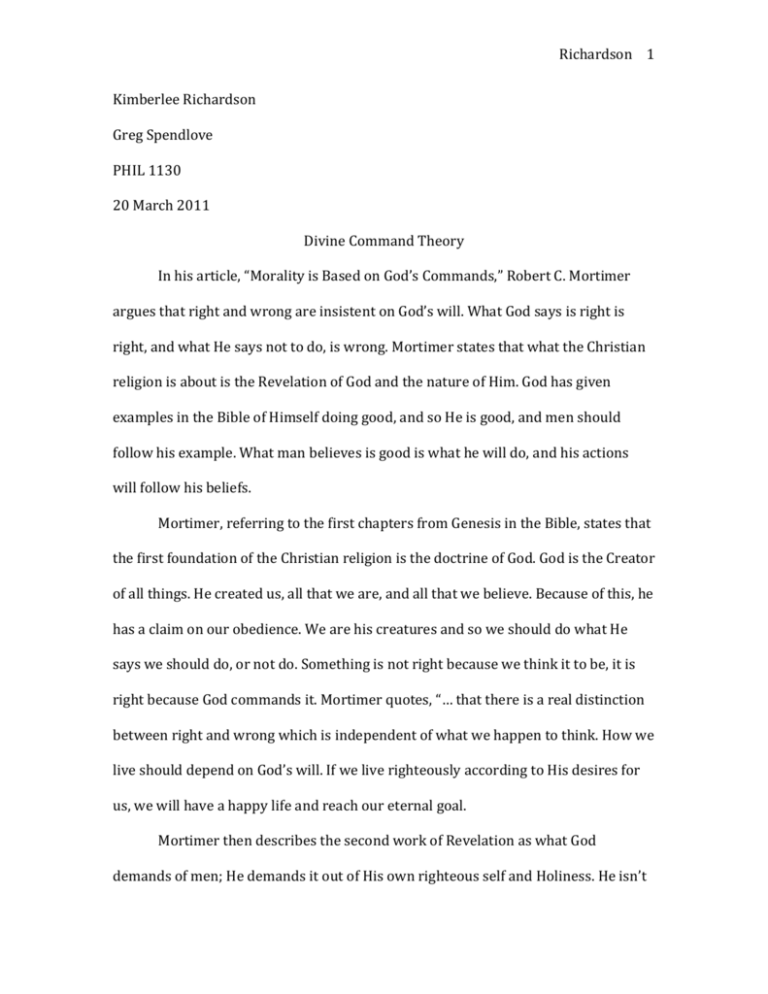
Richardson 1 Kimberlee Richardson Greg Spendlove PHIL 1130 20 March 2011 Divine Command Theory In his article, “Morality is Based on God’s Commands,” Robert C. Mortimer argues that right and wrong are insistent on God’s will. What God says is right is right, and what He says not to do, is wrong. Mortimer states that what the Christian religion is about is the Revelation of God and the nature of Him. God has given examples in the Bible of Himself doing good, and so He is good, and men should follow his example. What man believes is good is what he will do, and his actions will follow his beliefs. Mortimer, referring to the first chapters from Genesis in the Bible, states that the first foundation of the Christian religion is the doctrine of God. God is the Creator of all things. He created us, all that we are, and all that we believe. Because of this, he has a claim on our obedience. We are his creatures and so we should do what He says we should do, or not do. Something is not right because we think it to be, it is right because God commands it. Mortimer quotes, “… that there is a real distinction between right and wrong which is independent of what we happen to think. How we live should depend on God’s will. If we live righteously according to His desires for us, we will have a happy life and reach our eternal goal. Mortimer then describes the second work of Revelation as what God demands of men; He demands it out of His own righteous self and Holiness. He isn’t Richardson 2 just telling us what we should do, but that we should be as He is. Or, at least, strive to be Him. Thirdly and lastly, Mortimer describes the third work of Revelation. Each human being has extreme, individual value. All children of God are equal and are the object of His love. We continue to grow, learn, and strive to be better. There is always a need for further refinement and we look to God to help us achieve perfection. In his article, “Why Morality Does Not Depend on Religion,” John Arthur refutes the Divine Command Theory and claims made by Robert Mortimer and other theists. Arthur claims that morality is not dependent on religion and vice versa. He states that, “far from religion being necessary for people to do the right thing, it often gets in the way.” Arthur begins his article with definitions of morality and religion. To have a moral code, a society evaluates the behavior of others and judges as to whether they are right or wrong, whether a person would feel guilt in doing or not doing something. Religion, he states, is the belief in a supernatural power and worship of said supernatural power. Morality and religion include completely separate activities. Arthur goes on to explain the connection, if any, between morality and religion. He argues that yes, there are some connections between the two, but that the connection is not necessary. Morality and religion do not depend on each other. One example he uses is that God motivates people to do the right thing, that God and religion are a deciding factor in people’s everyday decisions. He argues that most Richardson 3 people do not think of God and religion when making a decision. They usually think about the consequences, if they will have any regrets, and if it will hurt anyone in anyway, among other things. Arthur suggests that people will think those things when making decisions, regardless of religion. In his article, Arthur also argues that religion actually hinders moral choices and that the Divine Command Theory is false. He concludes his article with, “morality does not need religion and religion does not need morality.
